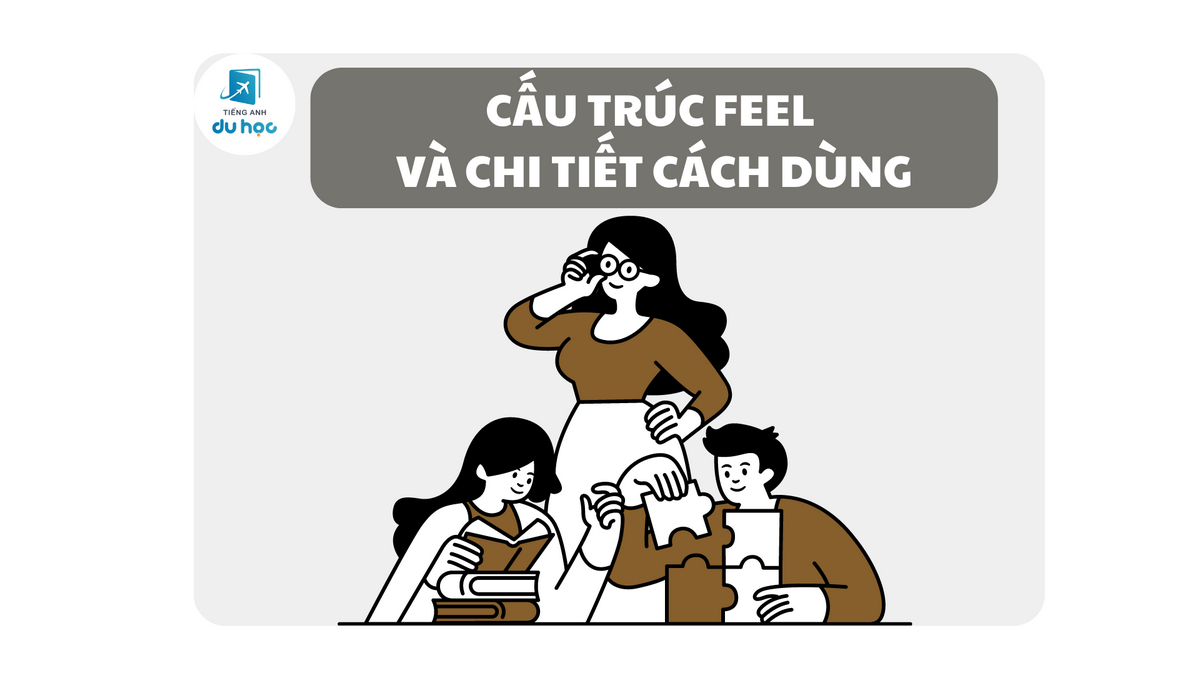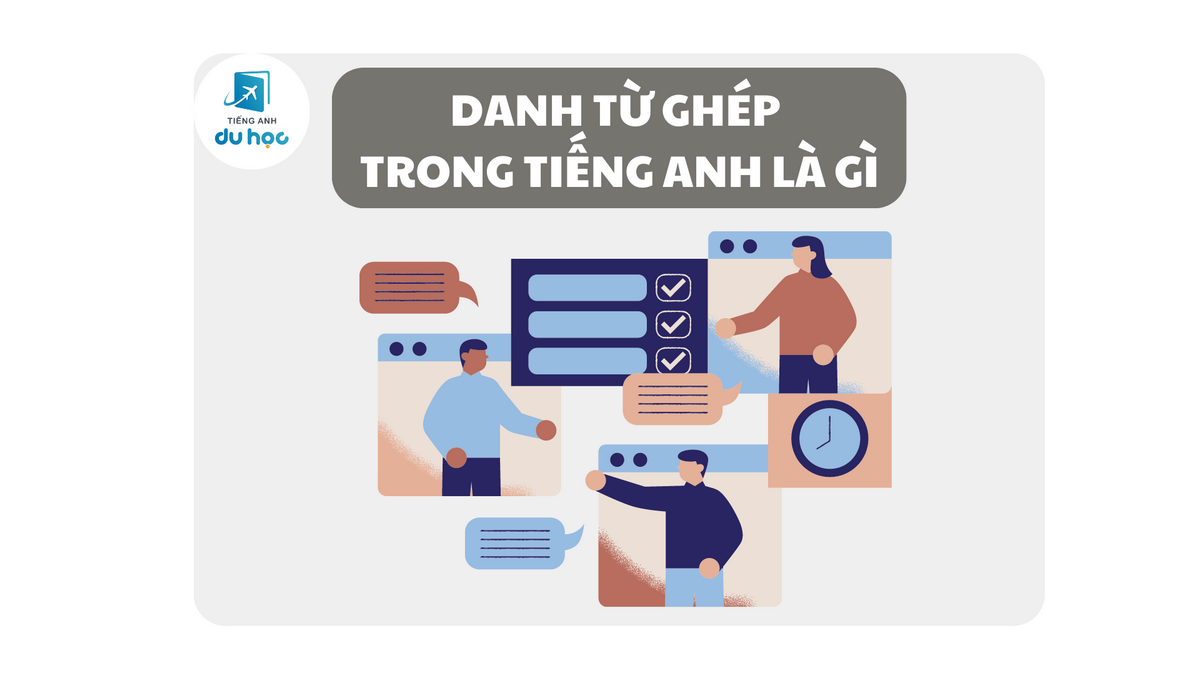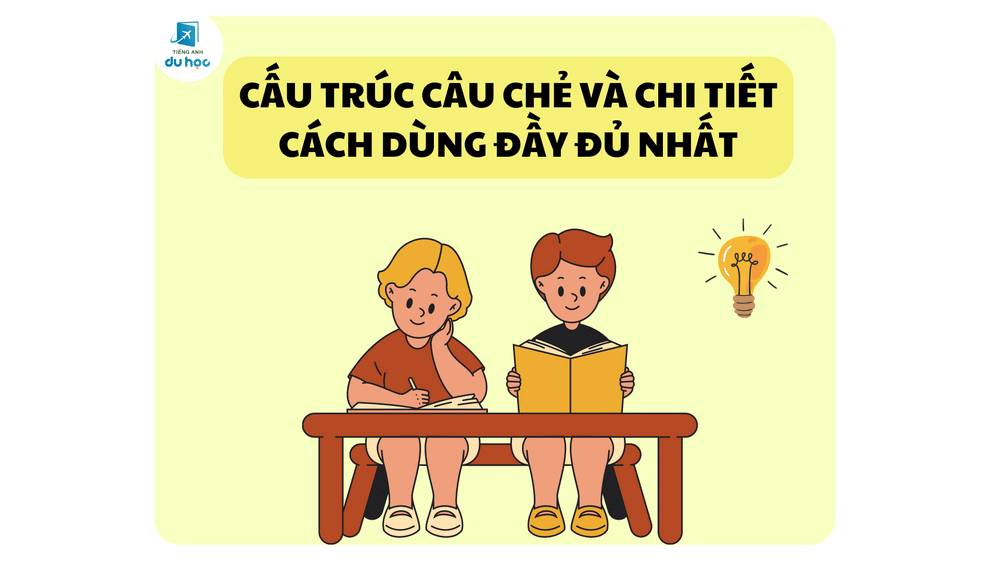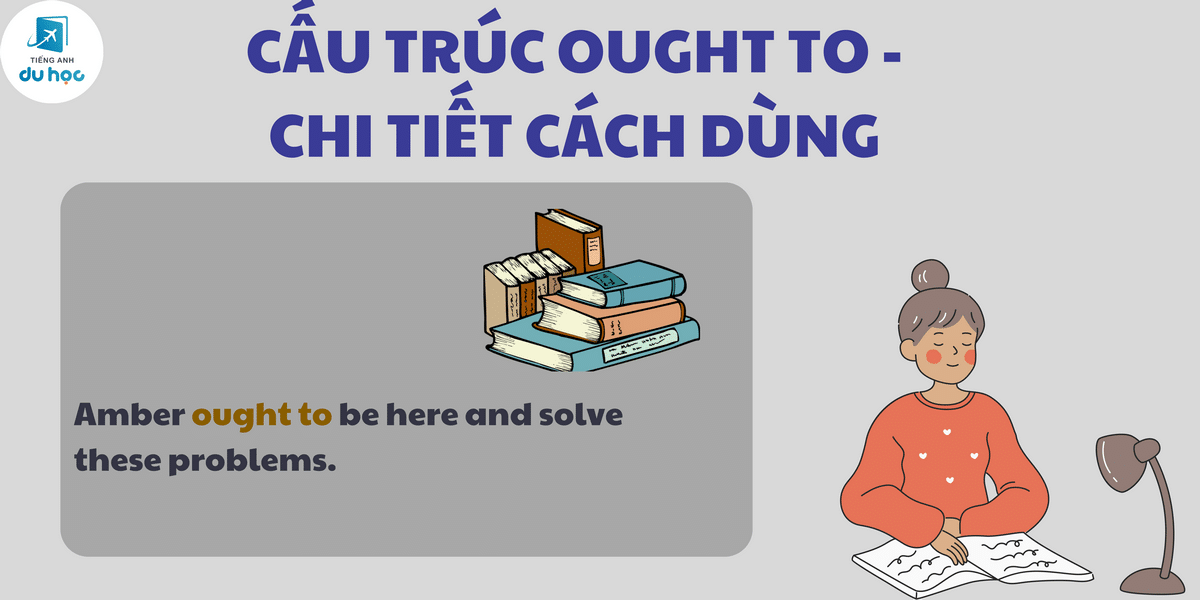Trạng từ trong tiếng Anh gọi là adverb (hay còn gọi là phó từ). Là loại từ quen thuộc mà bất kể bạn học tiếng Anh mà cũng cần phải nắm rõ và sử dụng thành thạo.
Trạng từ là những từ dùng để bổ nghĩa cho động từ, tính từ, một trạng từ khác hay cho cả câu. Nhưng cũng tùy trường hợp câu nói mà người ta có thể đặt nó đứng sau hay cuối câu nên sẽ gây nhầm lẫn vì có nhiều cách sử dụng khác nhau, vì vậy việc làm bài tập để củng cố kiến thức là hết sức quan trọng. Bài viết hôm nay sẽ chia sẻ về Bài tập về Trạng từ trong tiếng Anh có hướng dẫn đáp án chi tiết.
Bài viết liên quan được quan tâm nhất:
- Bảng cách chuyển đổi từ loại trong Tiếng Anh
- Các trạng từ trong tiếng Anh
- Trạng từ chỉ số lượng trong tiếng Anh
1. Tóm tắt lý thuyết về trạng từ trong tiếng Anh
1.1. Trạng từ là gì? Dấu hiệu nhận biết
Adverbs- trạng từ hay còn gọi là phó từ, là những từ được sử dụng trong câu để bổ nghĩa cho động từ, tính từ, một trạng từ khác.
- Dấu hiệu nhận biết:
| Adverb endings | Examples |
| l. – ly | firstly, fully, greatly, happily, hourly |
| 2. – wise | otherwise, clockwise |
| 3. – ward | backward, inward, onward, eastward |
1.2. Cách thành lập trạng từ
Cách thành lập trạng từ

- Hầu hết các trạng từ đều được cấu tạo từ tính từ thêm “-ly”
Ví dụ: slow- slowly, enormous- enormously, clear- clearly, careful- carefully, annual- annually, hopeful- hopefully, additional- additionally, honest- honestly, ….
Trong một số trường hợp, những từ kết thúc bằng “-ble”, chúng ta thường bỏ “e” trước khi thêm “-ly’.
Ví dụ: true- truly, sensible- sensibly, remarkable- remarkably, horrible- horribly, ….
Nếu tính từ kết thúc là “-y), chúng ta chuyển thành “-” trước khi them “-ly”, trừ một số từ có một âm tiết và kết thúc bằng “-y” như sly, dry,…
Ví dụ: happy- happily, greedy- greedily, sly- slyly, easy- easily, ….
- Một số trạng từ có “-ly” nhưng có thể là tính từ và một số trạng từ có cấu tạo giống như tính từ, do đó có thể khó để tìm và nhận biết trạng từ. Quy tắc dễ nhất là nhìn vào những từ khác đi kèm.
Nếu đứng trước một danh từ, nó có thể là tính từ:
Ví dụ: an early lecture, a late meeting, a short way, a …
Nếu có mối liên hệ đến động từ hoặc đi trước tính từ, nó có thể là trạng từ:
Ví dụ: environmental friendly,
The lesson was cut short.
We met late at night.
She came in early.
Giống như tính từ, trạng từ cũng có dạng so sánh.
Ví dụ: George walked the most slowly of all of them.
The bar chart shows the girls performed the best at maths last year.
- Trạng từ hình thành từ danh từ
Một số ít trạng từ được cấu thành từ danh từ với hậu tố “-wise”, có nghĩa là bằng cách nào, theo cách nào.
Ví dụ: sideways, clockwise, lengthwise, edgewise, crosswise, ….
He hit the tennis ball sideways. “in a way that sent it off to the side of the court”. ( Anh ấy đánh quá bóng tennis sang một bên.- Bằng cách nào đó anh ấy đã đánh quả bóng sang bên lề của sân tennis).
Trong một số trường hợp, trạng từ kết thúc là “-wise” bổ nghĩa cho ý kiến của mệnh đề và nó giới hạn quan điểm của người nói về một ý kiến, phạm vi của chủ đề.
Ví dụ: otherwise, timewise, likewise,… .
It can’t be too windy. Otherwise, the officials postpone the match. Likewise, heavy rain can be a reason for postponing this match.
- Những trường hợp đặc biệt
| Những trạng từ có hình thức không phổ biến | Chuyển nghĩa |
| Với trường hợp này, cấu tạo của tính từ và trạng từ giống nhau hoặc đều kết thúc bằng “-ly” | Trạng từ được cấu tạo từ tính từ có thể có nghĩa khác hoàn toàn với nghĩa của tính từ ban đầu. |
| ● daily- dailyThe magazine is published daily. (adv)This is the daily edition of the magazine. ( adj) | ● hard (tough- cứng)- hardly (barely- hiếm khi)A desk has a hard surface. (adj)I hardly have time to hang out with friends. (adv) |
| ● early- earlyIt is the early edition of the magazine (adj).The magazine arrives early. (adv) | ● late (tardy- muộn, trễ)- lately (recently- gần đây, mới đây)He arrived late at the office. (adj)he hasn’t been working lately. (adv) |
| ● fast- fastShe is a fast runner. (adj)She runs fast. (adv) | ● Free (no cost- miễn phí), freely (without restriction- tự do)Water is free. (adj)You can speak freely. (adv) |
| ● hard- hardIt was a hard problem. (Adj)They play hard. (adv) | ● pretty (beautiful- đẹp)- pretty (rather- hơn)She is a pretty child. (adj)She is pretty difficult to control. (adv) |
1.3. Các trạng từ đồng nghĩa cần nhớ
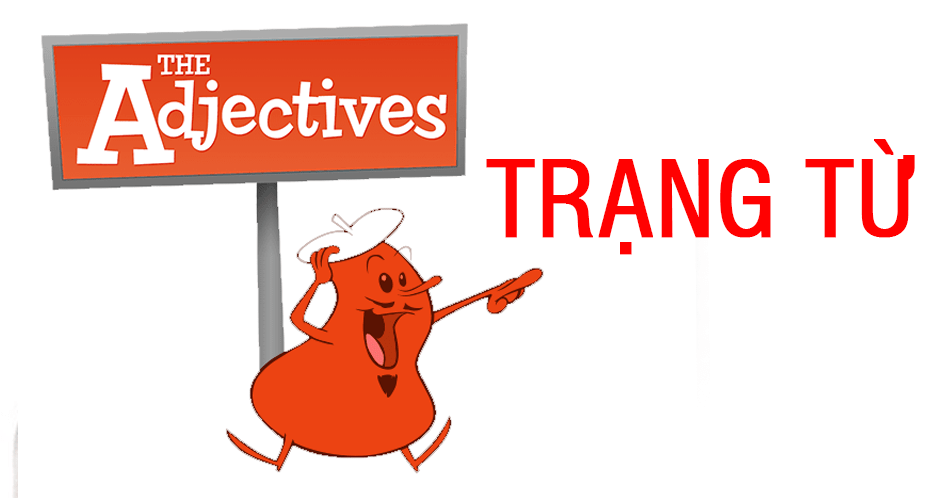
- Cẩn thận, kỹ càng: carefully, cautiously, thoroughly, meticulously, elaborately
- Đôi khi: occasionally, sometimes
- Đột ngột: dramatically, suddenly, unexpectedly
- Ban đầu: firstly, initially, primarily, originally
- Thường xuyên: frequently, regularly, usually, often, consistently
- Vô cùng, rất: highly, extremely, very, really
- Hiện tại: currently, recently, lately, already, still
- Khá: relatively, quite
- Đặc biệt, cụ thể: Especially, specifically
- Hoàn toàn: fully (+verb), absolutely (+adj), completely (+adj), extensively (+ verb/adj)
- Hiếm khi: hardly, seldom, scarcely
- Đầy đủ: adequately, sufficiently
- Đã từng, 1 khi: once
- Hợp lý: reasonably
- Lẫn nhau: mutually
- Sớm, ngay: shortly, soon, right after/before, briefly
- Nhanh, lập tức: immediately, promptly, urgently, quickly, swiftly, rapidly
2. Bài tập trạng từ
Theo chức năng, trạng từ được chia thành 7 loại chính là trạng từ chỉ cách thức, trạng từ chỉ thời gian, trạng từ chỉ tần suất, trạng từ chỉ nơi chốn, trạng từ chỉ mức độ, trạng từ đánh giá, ước lượng và cuối cùng là trạng từ nối. Dưới đây sẽ là bài tập chi tiết cho từng dạng:
Xem thêm các bài tập khác:
- Cấu trúc câu trực tiếp và câu gián tiếp
- Cấu trúc enough to, all/ all of
- Rút gọn mệnh đề trạng ngữ chỉ thời gian
Bài 1: Tìm ra những trạng từ trong câu dưới đây
- They worked fast to cover the distance before the breakfast hour.
- He wanted to go there immediately.
- He walked farther than I did.
- They got up very early.
- Are you quite sure about this?
- I didn’t know it as well as him.
- Today I feel somewhat better.
- He does his work quite differently from his brother.
- I wish he could write more plainly so that I could read his letters easily.
- They usually begin to work at 6 a.m.
- He is well spoken of.
- The children of our school were all neatly dressed
- He works hard all day.
Bài 2: Chọn đúng trạng từ chỉ tần suất và nơi chốn để điền vào trong câu
- He has read that book. (already).
- This book is interesting (extremely).
- I haven’t been there (before).
- He is on time (seldom).
- He has a bad pain in his chest (today, very).
- The elevator operates (automatically).
- He arrives (on time, never, at the meeting).
- I saw Dan (at the lecture, last night).
- I will be there (certainly, by 2 o’clock).
- He left the office (this afternoon, early).
- She will return the book (next week, to, the library).
- She went (at 6 o’clock, to school).
- He was born (in 1392, at 10 am, on June 14th).
- They stayed (all day, quietly, there).
Bài 3: Chuyển từ tính từ sang trạng từ chỉ cách thức
- James is careful. He drives____________.
- The girl is slow. She walks____________.
- Her English is perfect. She speaks English____________.
- Our teacher is angry. She shouts____________.
- My neighbor is a loudspeaker. He speaks____________.
- He is a bad writer. He writes____________.
- Jane is a nice guitar player. He plays the guitar____________.
- He is a good painter. He paints____________.
- She is a quiet girl. She does her job____________.
- This exercise is easy. You can do it____________.
Bài 4: Điền đúng dạng của trạng từ vào chỗ trống sau đó nhận biết xem đó là loại trạng từ gì
Occasionally Sometimes Usually Rarely Once Very Never Mostly Often always
- I …………………….. go to bed at 10 o’clock. (…………………………………)
- I have …………………. been to the USA. (…………………………………)
- I have been to Australia just ………………….. (…………………………………)
- I ………………….. take a bath before I go to bed. (…………………………………)
- My grandparents live in Kerala. I visit them …………………… (…………………………………)
- My friends are ………………… non-smokers. (…………………………………)
- I was …………………… impressed with her performance. (…………………………………
- I ………………….. go for a walk in the park. (…………………………………)
- I watch English films …………………. (…………………………………)
- They …………………. go out. (…………………………………)
Bài 5. Điền đúng loại trạng từ chỉ mức độ vào chỗ trống
Almost Very There Ever So Sometimes Clearly Perhaps Seldom Certainly
- I have ………………….. finished.
- He is ………………… clever.
- There is …………………. something wrong.
- ……………….. I think I should take a long break.
- ………………… her train is late.
- He is ……………….. late for work.
- She is ……………….. the right person for the job.
- Have you ………………. wanted to run away?
- You can see lots of flowers ……………….
- They are ………………… beautiful.
Bài 6. Viết lại câu hoàn chỉnh bằng cách sử dụng trạng từ chỉ tần suất trong ngoặc
- They go to the movies. (often)
- She listens to classical music. (rarely)
- He reads the newspaper. (sometimes)
- Sara smiles. (never)
- She complains about her husband. (always)
- I drink coffee. (sometimes)
- Frank is ill. (often)
- He feels terrible (usually)
- I go jogging in the morning. (always)
- She helps her daughter with her homework. (never)
- We watch television in the evening. (always)
- I smoke. (never)
- I eat meat. (seldom)
- I eat vegetables and fruit. (always)
Bài 7. Hoàn thành câu bằng cách sử dụng tính từ hoặc trạng từ
He’s always in a rush. I don’t understand why he walks so ____________ (quick/quickly).
I prefer studying in the library. It’s always_______________ (quiet/quietly).
Michael __________ (happy/happily) took the assistant job. He had been looking for a position all summer.
Marta dances _____________ (beautiful/beautifully). She’s been taking ballet since she was five years old.
They speak French very ____________ (good/well). They lived in France for two years.
My neighbor always plays ___________ (loud/loudly) music on the weekends. It’s so annoying.
Please be __________ (careful/carefully) in the hallway. The walls have just been painted.
Dan is very smart, but he is not a very___________ (good/well) student.
He reacted __________ (angry/angrily) to the news. I have never seen him so upset.
We didn’t ______________ (complete/completely) understand the teacher’s instructions. Most of us did not finish the assignment.
Bài 8: Trắc nghiệm chọn đáp án đúng
1. I take sugar in my coffee. (sometimes)
A. Sometimes take
B. Take sometimes
C. In my coffee sometimes
2. Tom is very friendly. (usually)
A.Is usually
B. Usually is
C. Very friendly usually
3. Pete gets angry. (never)
A. Never gets
B. Gets never
C. Angry never
4. They read a book. (sometimes)
A. Read sometimes
B. Sometimes read
C. Read a book sometime
5. He listens to the radio. (often)
A. Often listens
B. Listens often
C. To the radio often
6. He’s lazy and _____ tries.
A. hard
B. hardly
C. Either could be used here. Academy
7. He should pass the test _____.
A. easy
B. easily
C. easily
8. He’s a ____ actor.
A. terrible
B. terrible
9. I’ve been having a lot of headaches ____.
A. late
B. lately
10. Check your work ____.
A. careful
B. carefuly
C. carefully
11. I know them quite ____.
A. good
B. well
C. Either could be used here.
12. She’s a ____learner.
A. quick
B. quickly
13. She speaks so very ____.
A. quick
B. quickly
14. The TV’s far too ____.
A. loud
B. loudly
C. Either could be used here.
15. She played _____.
A. beautiful
B. beautifuly
C. beautifully
16. Maria …. opened her present. (slow)
A. Slow
B. Slowly
17. Don’t speak so …… I can’t understand you. (fast)
A. Fast
B. Fastly
18. Our basketball team played ….. last Friday. (bad)
A. Badly
B. Bad
19. This steak smells …… (good)
A. Good
B. Goodly
20. Jack is …. upset about losing his keys. (terrible)
A. Terribly
B. Terrible
21. Robin looks …. What’s the matter with him? (sad)
A. Sadly
B. Sad
22. Be …. with this glass of milk. It’s hot. (careful)
A. Careful
B. Carefully
23. This hamburger tastes ….. (awful)
A. Awful
B. Awfuly
C. Awfully
24. Kevin is ….. clever. (extreme)
A. Extremely
B. Extreme
25. The bus driver was ….. injured. (serious)
A. Serious
B. Seriously
Xem thêm bài viết hay:
Đáp án bài tập
Bài tập 1
- They worked fast to cover the distance before the breakfast hour.
- He wanted to go there immediately.
- He walked farther than I did.
- They got up very early.
- Are you quite sure about this?
- I didn’t know it as well as him.
- Today I feel somewhat better.
- He does his work quite differently from his brother.
- I wish he could write more plainly so that I could read his letters easily.
- They usually begin to work at 6 a.m.
- He is well spoken of.
- The children of our school were all neatly dressed
- He works hard all day.
Bài tập 2
- He has already read that book.
- This book is extremely interesting.
- I haven’t been before there.
- He is seldom on time.
- Today, he has a very bad pain in his chest.
- The elevator operates automatically.
- He never arrives on time at the meeting.
- I saw Dan at the lecture last night.
- I will certainly be there at 2 o’clock.
- This afternoon, he left the office early.
- She will return the library to the book next week.
- She went to school at 6 o’clock.
- He was born at 10 am, on June 14th, in 1392.
- They stayed quietly there all day.
Bài tập 3
- James is careful. He drives carefully.
- The girl is slow. She walks slowly.
- Her English is perfect. She speaks English perfectly.
- Our teacher is angry. She shouts angrily.
- My neighbor is a loudspeaker. He speaks loudly.
- He is a bad writer. He writes badly.
- Jane is a nice guitar player. He plays the guitar nicely.
- He is a good painter. He paints well.
- She is a quiet girl. She does her job quietly.
- This exercise is easy. You can do it easily.
Bài tập 4
- I usually go to bed at 10 o’clock. (adverb of frequency)
- I have never been to the USA. (frequency adverb)
- I have been to Australia just once. (frequency)
- I always take a bath before I go to bed. (frequency)
- My grandparents live in Kerala. I visit them often. (frequency)
- My friends are mostly non-smokers. (focusing adverb)
- I was very impressed with her performance. (degree adverb)
- I sometimes go for a walk in the park. (frequency adverb)
- I watch English films occasionally. (frequency adverb)
- They rarely go out. (frequency adverb)
Bài tập 5
- I have almost finished.
- He is very clever.
- There is clearly something wrong.
- I sometimes think I should take a long break.
- Perhaps her train is late.
- He is seldom late for work.
- She is certainly the right person for the job.
- Have you ever wanted to run away?
- You can see lots of flowers there.
- They are very beautiful.
Bài tập 6
- They often go to the movies. (often)
- She rarely listens to classical music. (rarely)
- He sometimes reads the newspaper. (sometimes)
- Sara never smiles. (never)
- She always complains about her husband. (always)
- I sometimes drink coffee. (sometimes)
- Frank often is ill. (often)
- He usually feels terrible (usually)
- I always go jogging in the morning. (always)
- She never helps her daughter with her homework. (never)
- We always watch television in the evening. (always)
- I never smoke. (never)
- I seldom eat meat. (seldom)
- I always eat vegetables and fruits. (always)
Bài tập 7
1. quickly, 2. quiet, 3. happily, 4. beautifully, 5. well, 6. loud, 7. careful, 8. good, 9. angrily, 10. completely
Bài tập 8
1. A 2. A 3. A 4. B 5. A 6. B 7. B 8. A 9. B 10. C 11. C 12. A 13. B 14. A 15. C 16. B 17. A 18. A 19. A 20. A 21. B 22. A 23. C 24. A 25. B
Trên đây là bảng tóm tắt kiến thức về trạng từ và các dạng bài tập về trạng từ liên quan. Hy vọng bài viết này sẽ giúp bạn nắm vững ngữ pháp về trạng từ và vận dụng vào bài tập một cách nhuần nhuyễn nhất nhé. Chúc các bạn học tốt.






